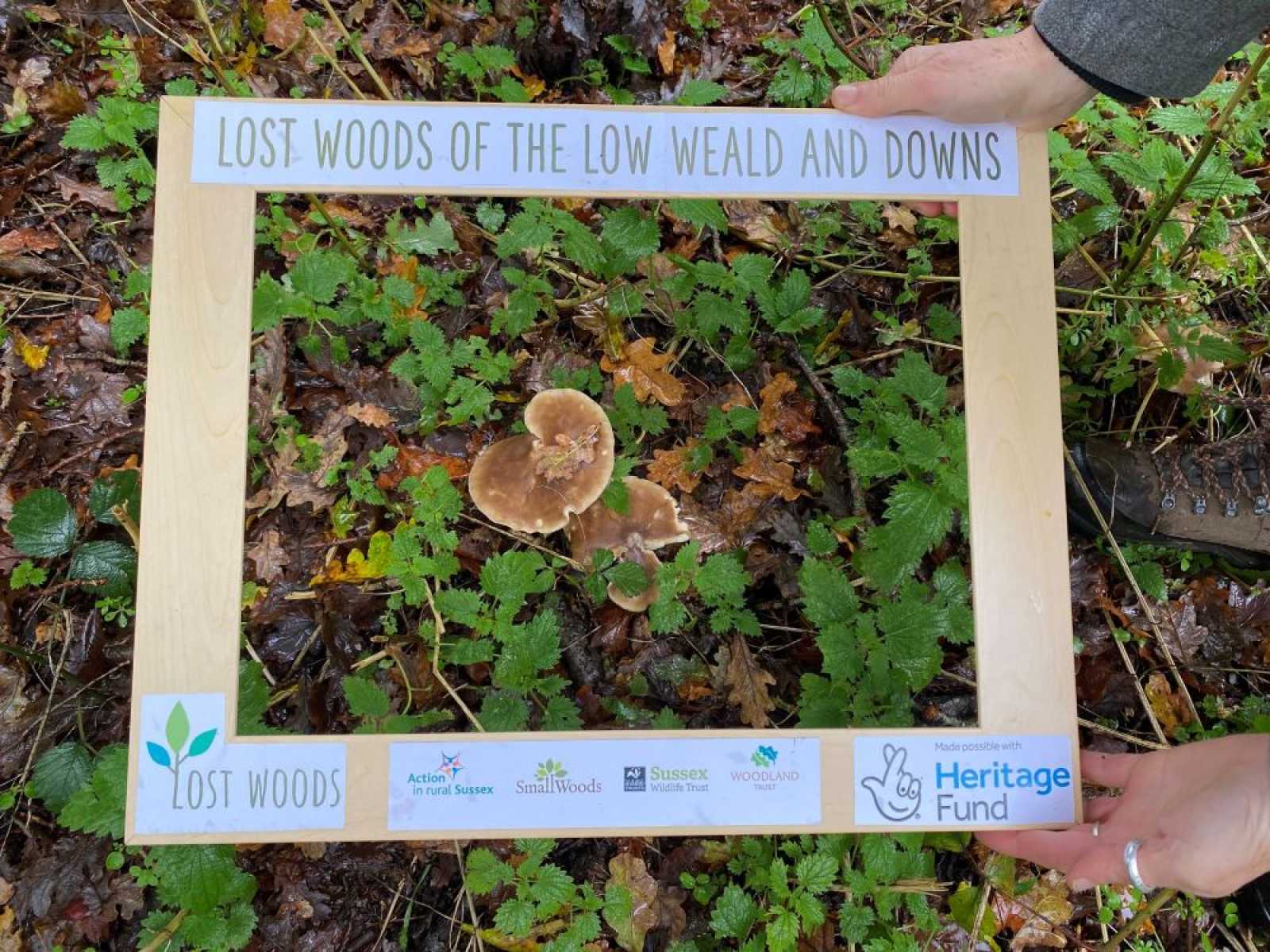The Lost Woods of the Low Weald and Downs is a landscape project which will bring back to life the neglected ancient woods of the Low Weald. We will boost biodiversity, revitalise traditional woodland management and reconnect local people to woods and trees.
Cathy Wallace, Lost Woods Community Development Worker, reflects on how ‘Woods on Prescription’ sessions are helping to improve people’s sense of wellbeing.
In the tussocky meadow within the woodland of a local nature reserve, something special is happening. ‘I can see one!’ A small group of people are gathering around an unassuming-looking clump of thorny twigs, wielding magnifying glasses and peering excitedly. ‘Yes! It’s definitely one.’
The group is taking part in a Lost Woods project ‘Woods on Prescription’ session, which supports people to connect with nature and each other to improve their wellbeing. Sessions take place once a week for six weeks, with group participants taking part in woodland and nature-based activities relating to one of the NHS’s ‘Five Ways to Wellbeing’ – Connect, Take Notice, Get Active, Learn Something New, and Give Back.
Today the group is learning something new by surveying for rare brown hairstreak butterflies, by searching for their eggs on the butterfly’s foodplant, blackthorn.
Sure enough, after a few moments trawling through the thorny stems, a tiny white dot is located and confirmed by Lost Woods Senior Community Development Worker Michael Blencowe as a brown hairstreak egg. The sessions are run by one of Lost Woods’ project partners, Action in Rural Sussex.
Several more are spotted in quick succession, confirming that this elusive butterfly, nationally scarce but with a stronghold in Sussex, is active here at West Park. Thanks to the group’s efforts, the local council can now manage parts of the habitat specifically for this butterfly, helping to ensure its future here.
The group have also taken part in practical conservation tasks to help manage the woodland. ‘It’s made me so proud of the local area, knowing we have this special butterfly here’ says one participant happily. ‘It’s just a scrappy little wood, but it’s full of magical stuff if you know how to look.’
Over the past few sessions, the group members have made willow wreaths, removed invasive snowberries from the woodland, created beautiful woodland lanterns, spotted wildlife and fungi, and connected deeply with one another through a shared love of nature.
Using the woodlands as a base offers many health benefits such as reduced stress levels, improved mental health, boosted immunity and higher levels of Vitamin D. It’s good for the woodland too, as studies show time spent in nature leads to pro-environmental behaviour – a desire to care for and protect these special environments.
One participant shares: ‘It’s got me out of the house and got me more interested in life again following an illness.’ The group ends with tea and cake and shared thoughts and experiences, along with a nature-based task for the coming week.
‘I’ve had the most beautiful time,’ one participant says. ‘It’s something I wouldn’t have thought I’d come along to, but it’s been enjoyable, informative and I’ve learned a lot. I’ve loved meeting different people – different types of people.’
The Lost Woods Team is in the process of setting up a new group in Small Dole with the aim to begin sessions in mid-April. If you would like to join as a participant, volunteer or have some nature expertise you’d like to share, then please contact lostwoodsteam@ruralsussex.org.uk. We’d also like to hear from groups supporting under-represented or underserved communities who’d like some bespoke woodland activities. We can even bring activities to you, if getting out into the woods is difficult.
Cathy Wallace, Action in Rural Sussex
